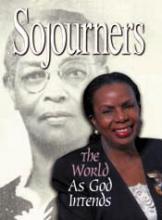Elizabeth Davis Hinshaw, a widow with two children, and Browne Barr, a widower with two children, were married in the summer of 1957. Two people from very different cultures and theological traditions made a covenant to be faithful to each other and began the painful and joyful task of becoming one in flesh and spirit.
After a move to Berkeley, California, when Barr received a call to become minister of First Congregational Church (and later dean of San Francisco Theological Seminary), the couple moved to their retirement home in the Napa Valley, where they expected to remodel their home, become active in an intergenerational community, and sail leisurely on a freighter ship to Asia.
Their plans were brought to naught a few months into retirement when Hinshaw was diagnosed with congestive heart failure and given two years to live. To the challenge of adjusting to retired life was added the burden of finding meaning and purpose in Elizabeths imminent death. Through their becoming more honest with and open to each other, with the support of their community, and by the grace of God, Hinshaw and Barr were granted six years to transform "a beleaguered marriage rocked by illness and conflict and disappointment" into a deeply mature relationship with a beauty and a "special glory all its own." Never Too Late to be Loved is Barrs compelling story of their final pain- and joy-filled years together and his meditation on the theological meaning of their experiences for themselves and their supportive community.
Read the Full Article
